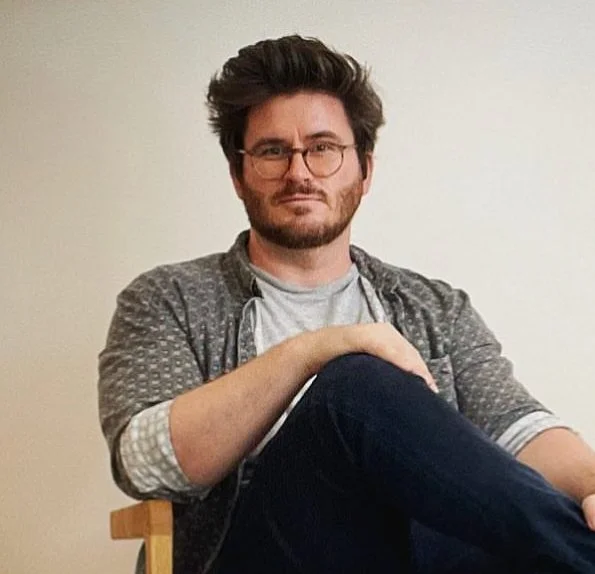
An Introduction to
Freudian-Lacanian Psychoanalysis
An Online Lecture Series
Jason Childs and Derek Hook
May 2 — July 4, 2026
What is psychoanalysis? This lecture course will set out to explore the answer provided to this question by the first psychoanalyst, Sigmund Freud; by the analyst many consider to be his most important and inventive interpreter, Jacques Lacan; and by the diverse group of thinkers and practitioners who have continued and expanded their project in recent decades.
Participants will receive a clear and lively introduction to core ideas in the Freudian-Lacanian tradition. We will explore both the historical context in which these ideas developed and their relevance today—in the clinic, in culture, in critical theory, and beyond. In addition to revisiting important moments in Freud’s and Lacan’s oeuvres, we will also explore works and ideas from some of the most influential Lacanians working today, such as Bruce Fink, Jacques-Alain Miler, Slavoj Zizek, and Alenka Zupancic.
This course will take place over ten 90-minute sessions, each including a lecture and open discussion:
The Freudian Unconscious
The Freudian Clinic
The Drives
The Death Drive
Lacan’s Return to Freud
Symbolic, Imaginary, Real
Desire and Jouissance
The Lacanian Clinic: Analytic Ethics
The Lacanian Clinic: Diagnosis and Technique
Lacan in Theory
Enrolment in this course is open to all. It will assume no prior knowledge, and will seek to accommodate both newcomers and those more familiar with psychoanalysis. It will be valuable to undergraduate and graduate level students engaged with psychosocial studies; to psychoanalytic candidates and therapy trainees who aim to develop their knowledge base; to professional clinicians who wish consolidate or expand their understanding of analysis; to analysands currently grappling with the unconscious; and to anyone else who wants to develop a deeper grasp of psychoanalysis.
Objectives
By the end of the course, participants will be able to:
Explain central concepts in Freudian and Lacanian psychoanalysis, including the unconscious; the drives; the symbolic, imaginary, and real; and others.
Trace key developments in psychoanalytic theory from Freud to Lacan and understand their ongoing influence today.
Recognize how psychoanalytic ideas illuminate questions of culture, language, and subjectivity.
Engage critically with major interpreters and contemporary developments in the Freudian–Lacanian tradition.
Understand how psychoanalytic diagnostic structures shape clinical practice.
Overview
This course will run on Saturdays from May 2 to July 4 in 2026.
Sessions will run 90 mins starting at 7am LA / 10am NYC / 4pm Paris.
Sessions will be delivered via Zoom and recorded for those unable to attend live.
Full fee: €180 / Concession: 140€ (Approx. US$210 / US$160)
Participants who complete the course will be eligible to receive a digital letter of acknowledgement outlining the content covered and signed by the course instructors.
Practical Information
Instructors
Jason Childs is a Lacanian psychoanalyst based in France, working in private practice both locally and internationally. He began his career in academia, as a literary theorist, where he published work on the relationship between philosophy and literature. Childs trained as a psychotherapist at Deakin University in Melbourne, and undertook his analytic formation via studies at the Centre for Freudian Analysis and Research, the Lacan Circle of Australia, and other international Lacanian organisations. He teaches psychoanalysis at Pulsion Institute, the Global Centre for Advanced Studies, and the Blanton-Peale Institute. He is the author of two forthcoming books: On Not Fitting In: Rem(a)inders of Lacanian Psychoanalysis (Routledge 2026) and Drive: Theory and Clinic After Freud and Lacan (Palgrave 2026).
Derek Hook is a Professor of Psychology and a clinical supervisor at Duquesne University, Pittsburgh. A scholar and practitioner of psychoanalysis, he is one of the editors (along with Calum Neill) of the Palgrave Lacan Series and of the four-volume Reading Lacan's Ecrits (with Calum Neill and Stijn Vanheule). He began his analytical training in London, at the Center for Freudian Analysis and Research. He is the author of Six Moments in Lacan (2016), Fanon, Psychoanalysis and Decolonial Psychology (2025) and the co-editor of Lacan on Depression and Melancholia (2023), in addition to many papers on various facets of the clinical and cultural dimensions of Lacanian Psychoanalysis. He maintains a YouTube channel with many lectures on Lacanian psychoanalysis.

